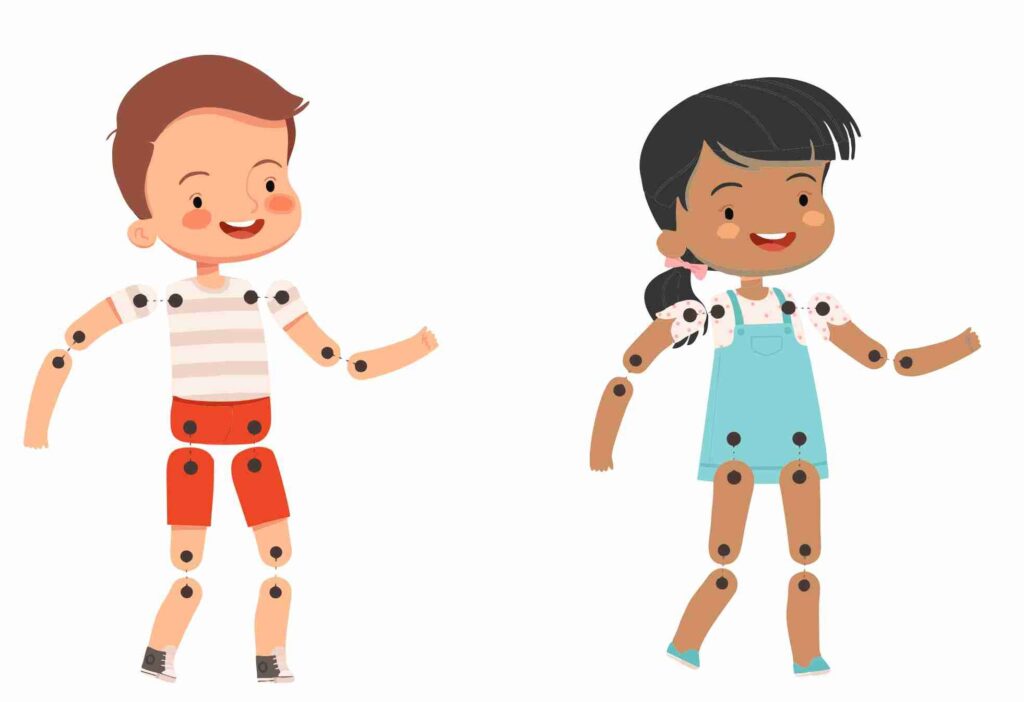
ATTENTIVENESS
Mrs L Stegen, Head of Foundation Phase
If we are attentive, we appreciate the worth of a person by giving him/her our full concentration. To be attentive is to be observant, thoughtful of others, considerate, gracious, polite, to listen carefully and show interest. It is more than listening with our ears, it means listening with our heart. The opposite is to be unconcerned, apathetic or indifferent. We do not notice people’s needs or see their worth. When we are distracted, we do not pay attention. We are not even focused on what others have to say. We miss opportunities to learn, grow, and be a blessing and help to others. If you don’t think people are worth anything, you will be unconcerned about what they say, think, feel or do.
How can we be a distraction? When we fiddle, cough and sneeze loudly, look around the room, make silly comments or jokes at inappropriate times, poke, hit, touch others or interrupt while they are paying attention.
Parents can teach their children to esteem others by looking at the person speaking to them. Looking around shows disrespect and inattentiveness.
The child’s posture demonstrates that they are listening. Slouching or not standing up straight and correctly says much about their attitude. It communicates a powerful message. Parents can teach their children to raise their hands before speaking, not interrupt and stay seated during lessons.
Some tips include teaching children how to interrupt someone politely. When entering a room, make sure nobody else is talking, thinking or listening before you speak. Do not talk over people. Listen to the person and allow them to finish without being interrupted. Even if someone is on a telephone call, reading or working on a computer.
One way to teach younger children how to interrupt, if they must tell you something, is to quietly enter the room and touch your hand or arm. You can put your hand on the child’s hand or arm. Now the child knows they must still wait. At the right moment, excuse yourself from the person and speak to the child. They must learn to stand still, be patient and respect the other person. An older child will just quietly wait until you say, “Excuse me” because they have already learned physical self-control and don’t need the physical reminder of interrupting with respect.
Source: www.lifestyle-homeschool.com/Character-notes-Attentiveness.html

SUPER SENSITIVE
Mrs E Gouws, Head of Intermediate Phase
Super is a word parents generally like using when referring to their children. ‘My son is super-fast!’ ‘She’s super good at Maths.’ He is super intelligent and so on. The super sensitive label though, has comparably few positive connotations.
A super sensitive child is highly sensitive and emotional, a child whom others “don’t get” or don’t quite understand. They are sweet natured, eager to please and easy to warm up to. They are empathetic. They are intuitive. They ask insightful questions. They are tender and more easily hurt. They ponder, they worry, they stew. When they’re happy, the house fills with sunshine. But when they’re sad, the house is gloomy.
When calm and happy, these children tend to stand out from the group, because they often do not participate. They watch from the side-lines because they have a strong sense of caution. They are overwhelmed or fear being overwhelmed by all the new stimulation that must be processed. They are hesitant to speak up in class and avoid team sports because they are afraid of what might happen. They like predictability and so, they worry long before about sleepovers, being away from home, the start of a new school year, school trips and Christmas gatherings, which may cause headaches, stomach aches or difficulty eating or sleeping.
According to Catherine Wilson, …highly sensitive children are conscientious almost to a fault. They want to “do the right thing,” and take personal slip ups and mistakes harder than most. Being so “mistake conscious” makes them self-conscious. It’s difficult for them to shrug off embarrassment over “putting a foot wrong” in public. They don’t think, ‘That just proves I’m human.’ They think, ‘That just proves I’m inadequate.’ Public speaking, music recitals, assignments and written exams can fill them with real dread; so much so that they may perform below their real level of ability.
Some tips on handling super sensitive children:
1. Acknowledge their emotions
Sensitive children long to be noticed and valued but because they tend to respond so strongly, parents can be tempted to accommodate their moods. The sensitive child’s emotions should not dictate the household mood.
2. Teach them correct responses
Teach children using Bible and other healthy stories to develop correct responses. Ask the child questions like: What is this character feeling? When do you feel that way? How do you think God feels about the way he/she reacted?
3. Help them practice responses
Give children opportunities to practice healthy emotional expressions during family devotions. Choose a simple passage such as “Do all things without grumbling or complaining” (Phil 2:14). Act out a familiar scenario in different ways. Allow the children to be the parents and announce: “It’s time to come inside!” The parents will complain like children sometimes do and they will see the incorrect behaviour. In the second round, the parents will demonstrate a positive attitude and self-control. Roles can be swapped. As children grow older, other emotional scenarios can be introduced which can give children a heads up on managing future emotional hurdles: What do you do if you are left out of the soccer team? How do you react when a friend says something hurtful?
4. Share your experiences
The common scenario of a flopped cake can affect a sensitive child and evoke, “I always mess up,” and “I’m terrible at everything,” responses. Share your experiences. “Have I told you about the first time I baked a cake?” Talk about your flops and how you ended up crying about it. Sharing your failures gives sensitive children comfort and hope. They remind children that it is okay not to be able to do everything, and it is okay to still be growing, no matter how old you are.
Sources: https://www.focusonthefamily.ca/content/understanding-highly-sensitive-childrenhttps://www.focusonthefamily.com/parenting/6-ways-to-help-your-highly-sensitive-child-thrive/

LEARN
OTHER THINGS
Mr D van Straten, Head of Senior Phase
What is education for? Is it to make my child other people’s responsibility while I am absent from home and at work? Or for my child to find meaning in life by attaining the best possible marks in class to achieve feel-good recognition from peers and teachers?
Although these are some of the unintended reasons for education, teaching and learning should fulfil a much higher purpose: to prepare a child to become a responsible member of society who will attain to financial independence and contribute to the economic welfare of a country. In short, having a job.
While it is true that this should happen through instruction, it is generally recognised that the means to achieve this is through academic success, which is underpinned by pedagogy and standardised tests. What is often overlooked, is that all children are not academically inclined, or simply not interested in life at school. What is also overlooked, is that there are already masses of individuals who have given up on this narrow view, failed at school, and who are plodding along trying to make ends meet.
With an expanded unemployment rate close to 50%, and a 0.62 Gini inequality index which is the highest in the world, South Africa is in desperate need of a labour force overhaul. Although this is a problem that requires a multi-faceted solution, it would be worth our while to try and accommodate the many individuals who see themselves as non-academic. This not only includes school leavers, but also learners as young as those who wish to leave school at the end of Grade 9, or those who are far past the school-leaving age.
Studying a trade is something most of us are aware of, but which few of us take seriously. Together with this goes apprenticeships and even skills training. However, being able to fix a water leak, lay a brick, weld a pipe, or successfully propagate a seedling, could go a long way to equip a needed gap in education.
But a word of caution: as with other qualifications, studying a trade or training for a skill should not be seen as an escape route; it requires passion, enthusiasm and hard work. Secondly, as with other qualifications, ensure that any course or programme has the necessary accreditation from a reputable organisation.
Academics has its place in society; we need engineers, lawyers and accountants. However, we also need those who can see to their own, and others’ well-being because of the skills they have acquired.

ALWAYS LEARNING
Mrs J Sibeko, Head of FET Phase
Learning is a continuous process of gaining knowledge and skills, which never stops because life never stops teaching us. Learning new things is important for your child’s growth and especially for their professional life. If your child stop learning new things, he/she can deteriorate as learning something new keeps your child’s brain cells active and allows them to grow.
“Life is like riding a bicycle. To keep your balance, you must keep moving” – Albert Einstein
It is rightly said never stop learning…. because life is the teacher which gives your child the opportunity to learn new things. It motivates your child to learn and defeat the challenges which they meet up with.
Learning is a never-ending journey. From birth till death, children are in a continuous cycle of learning new things. It is a necessary part of their life. By observing new things and experiencing it, their perspective broadens and changes the way they see the world. It improves their behaviour and their way of thinking by expanding and challenging their understanding.
Learning is about enriching one’s mind. Learning new things represents the growth mindset. Learning something new is a challenge. One must challenge oneself. I have experienced that the fear of making a mistake, the fear that it may not work or perhaps that I will not be able to do it properly makes us shy away from learning new things. We are afraid to leave our comfort zone because this is where we feel safest and most secure. So, uncertainty may keep your child from attempting new things which will lead to growth. This is where a parent comes in to support and encourage the child.
Source: https://internationaljournalofresearch.com/2020/07/06/never-stop-learning-because-life-will-never-stop-teaching/

THE WAY IS IN
THE WILL
Mrs A du Preez, Academic Head
Where there is a will there is a way, the saying goes. If you have your doubts about the validity of the saying, ask a teacher. Teachers know. It happens in front of their eyes in the classroom when some learners’ faces turn into screen savers after a short time while others listen attentively – their eyes bright with an eagerness to learn.
One wonders what switches on those ‘screen savers’. Could daydreaming be the culprit? And if so, what is the cause? Too much TV perhaps? Or an overdose of social media? Too little sleep? Worries? One thing is sure: Switching off the will to learn will switch on that screen saver.
The will to want to learn is seen in children walking kilometers to school on winter mornings. Another student, spent hours during lockdown with his laptop up in a tree for the sake of connectivity – just to be able to continue studying online. Others work after hours to earn their own school fees. There are many success stories of learners who have overcome various difficult obstacles by mere willpower.
At our Careers Day earlier this month, we were inspired by various speakers’ success stories (and how they overcome obstacles). These professionals had two things in common: firstly, they held the role of God’s guidance in high esteem and secondly, the positive influence of their parents in their lives.
We dare not underestimate the influence of parents in their children’s attitude towards learning and school life. An interested parent bonds easily with his/her child, and their enthusiasm spills over to the child. It is within a parent’s power to nurture in the child the desire to learn.
This is the beginning of successful learning – without ‘screen savers’ – for where there is a will there is a way.
